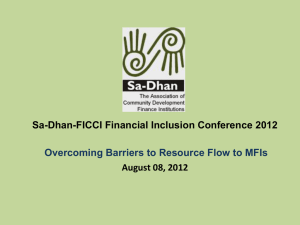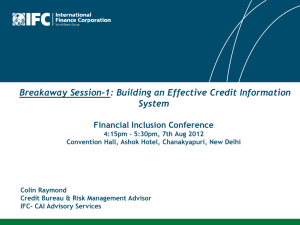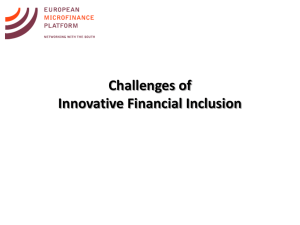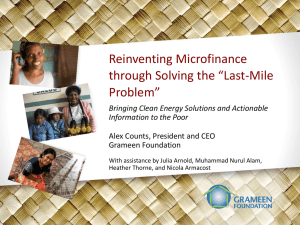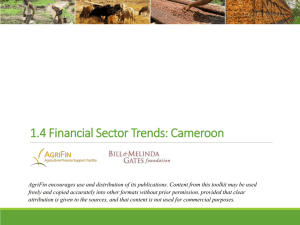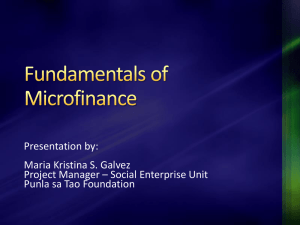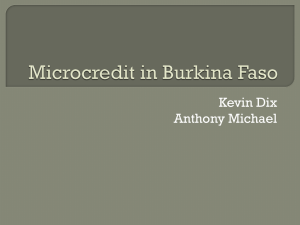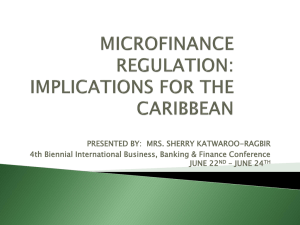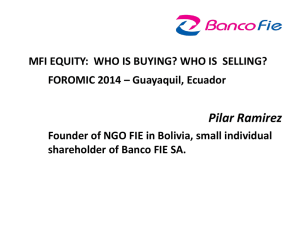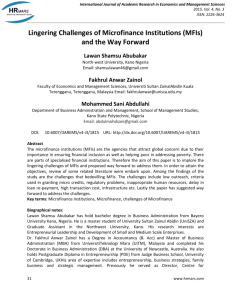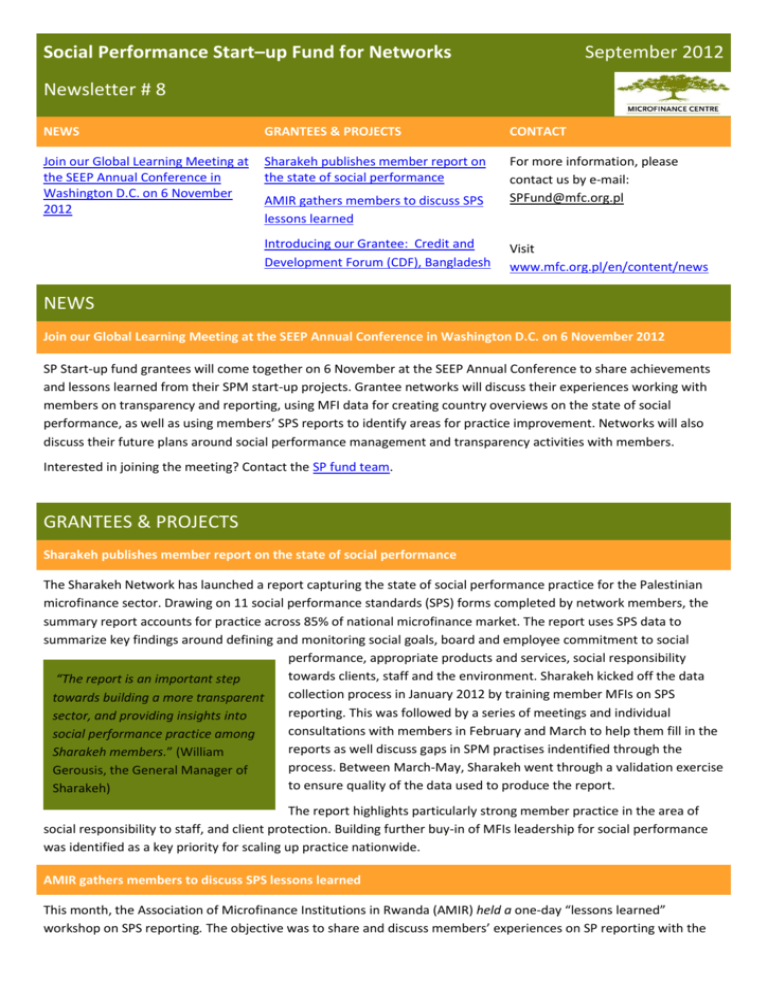
Social Performance Start–up Fund for Networks
September 2012
Newsletter # 8
NEWS
GRANTEES & PROJECTS
CONTACT
Join our Global Learning Meeting at
the SEEP Annual Conference in
Washington D.C. on 6 November
2012
Sharakeh publishes member report on
the state of social performance
For more information, please
contact us by e-mail:
SPFund@mfc.org.pl
AMIR gathers members to discuss SPS
lessons learned
Introducing our Grantee: Credit and
Development Forum (CDF), Bangladesh
Visit
www.mfc.org.pl/en/content/news
NEWS
Join our Global Learning Meeting at the SEEP Annual Conference in Washington D.C. on 6 November 2012
SP Start-up fund grantees will come together on 6 November at the SEEP Annual Conference to share achievements
and lessons learned from their SPM start-up projects. Grantee networks will discuss their experiences working with
members on transparency and reporting, using MFI data for creating country overviews on the state of social
performance, as well as using members’ SPS reports to identify areas for practice improvement. Networks will also
discuss their future plans around social performance management and transparency activities with members.
Interested in joining the meeting? Contact the SP fund team.
GRANTEES & PROJECTS
Sharakeh publishes member report on the state of social performance
The Sharakeh Network has launched a report capturing the state of social performance practice for the Palestinian
microfinance sector. Drawing on 11 social performance standards (SPS) forms completed by network members, the
summary report accounts for practice across 85% of national microfinance market. The report uses SPS data to
summarize key findings around defining and monitoring social goals, board and employee commitment to social
performance, appropriate products and services, social responsibility
towards clients, staff and the environment. Sharakeh kicked off the data
“The report is an important step
collection process in January 2012 by training member MFIs on SPS
towards building a more transparent
reporting. This was followed by a series of meetings and individual
sector, and providing insights into
consultations with members in February and March to help them fill in the
social performance practice among
reports as well discuss gaps in SPM practises indentified through the
Sharakeh members.” (William
process. Between March-May, Sharakeh went through a validation exercise
Gerousis, the General Manager of
to ensure quality of the data used to produce the report.
Sharakeh)
The report highlights particularly strong member practice in the area of
social responsibility to staff, and client protection. Building further buy-in of MFIs leadership for social performance
was identified as a key priority for scaling up practice nationwide.
AMIR gathers members to discuss SPS lessons learned
This month, the Association of Microfinance Institutions in Rwanda (AMIR) held a one-day “lessons learned”
workshop on SPS reporting. The objective was to share and discuss members’ experiences on SP reporting with the
MIX SPS reporting templates. The meeting was also an opportunity for AMIR to verify members’ self-reported SP
information. 19 participants from MFIs, Terrafina, and the Rwanda Cooperatives Agency attended the workshop, as
well as network representatives.
Undergoing the SPS reporting process demonstrated that MFIs
are committed to social performance, and have the capacity to
provide quality information. Their computerized systems and
software allow them to extract the data required for effective
reporting. It also highlighted several major challenges to
reporting, including limited board knowledge of social
performance issues, lack of clear social objectives, lack of
mechanisms for client and staff complaint handling. Some MFIs
also realized that their salary and incentive systems are not
transparent.
For the network itself, the social reporting process resulted in a better understanding of current social performance
management practice, as well as key gaps. They also expect that that having SPS reports on the MIX website will help
increase the member MFIs’ visibility, and allow for country-level peer comparison of MFIs.
Introducing our grantee: Credit and Development Forum (CDF), Bangladesh
The Credit and Development Forum (CDF) was established in 1992 to build capacity, conduct research for
innovation, and advocate for sustainable poverty reduction in Bangladesh through efficient services. Its
vision is the sustainable reduction of poverty in Bangladesh through development of an efficient
microfinance industry.
The network’s goals are to:
Harness the potential of microfinance NGOs for the development of a healthy microfinance sector
Strengthen MFI capacity to provide effective microfinance services to the poor
Facilitate an enabling environment for microfinance practitioners
Strengthen the network’s advocacy function in order to change policy towards effective poverty alleviation
interventions.
Why SPM is important for CDF?
For CDF, SPM is important to address the following challenges and opportunities, both for its members and the
industry as a whole:
Dilution of social goals in the industry: microfinance in Bangladesh began as a tool to reduce poverty.
However, in the pursuit of scale, growth and sustainability, a majority of MFIs find it difficult to comply with
their original mission in practice.
Inadequate understanding and application of social performance: over the years, social performance
concepts and practice have broadened beyond “including the poor and excluded” and “poverty alleviation” to
include new dimensions such as appropriate products, transparency, client protection, governance, client
education, ethical staff behavior and social responsibility towards clients, communities and staff. While some
member MFIs, especially larger ones, have made efforts to ensure the participation of poor and excluded
groups through product innovation, the majority have not kept pace with other dimensions of best practice.
This has an impact on the perception on the sector and its long-term sustainability.
Improving business operations: Market saturation in certain pockets of the country is well reported, leading
to overlapping of clients. With a few notable exceptions, the industry has not witnessed much innovation in
products and business processes to meet clients’ needs in segmented markets. Integrating social
performance as a business strategy to improve products, process, can potentially lead to improved business
operations.
Challenging macro-environment: In recent years, conditions in the macro-environment (high inflation,
economic slowdown due to global financial crisis and natural disasters), have had a negative impact on
microfinance clients. Though social performance cannot change the external context, it can certainly help
MFIs respond more pragmatically to the changing financial needs of clients through.
Project plans in brief:
The CDF has the following targets for their SPM start-up project:
25% of members will include social performance in their design and strategic plan
50 members will report on their social performance to the MIX
20% of members will start using social performance data and information in their decision making
3 CDF staff will be equipped to provide members with SPM training and technical assistance after the project
improvement in social performance practice in 40 MFIs
To date, CDF has conducted three awareness-raising workshops for members on social performance, reaching out to
42 members in total. The workshops were followed up with a workshop on social performance reporting. The
network has also integrated 2-hour social performance sessions into existing CDF technical training modules such as
microfinance operational management, book-keeping and accounts management, delinquency management and
ratio analysis. It has also integrated social performance indicators in its regularly-administered questionnaire for CDF
Bangladeshi Microfinance Statistics, a publication presenting information on different aspects of MFIs’ performance.
Currently, network staff are working closely with member MFIs through individual consultations, on the preparation
of their MIX SPS reports. The network is also using these consultations to help them identify their strengths and gaps
in relation to their current SPM practice.
Microfinance Centre ul. Noakowskiego 10/38, 00-666 Warsaw, Poland, microfinance@mfc.org.pl, www.mfc.org.pl
Copyright © 2011 Microfinance Centre. All rights reserved

